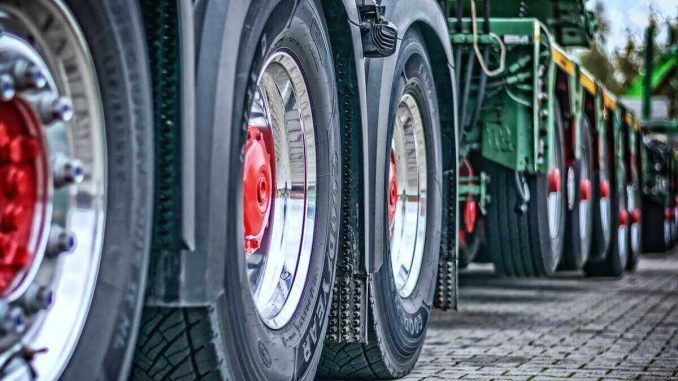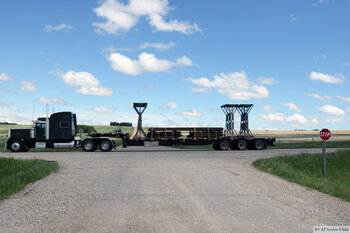
Semi-trailers are the workhorses of the transportation industry, hauling goods across vast distances. To ensure their safety, efficiency, and longevity, regular maintenance is crucial. In this comprehensive guide, we’ll explore the importance of semi-trailer maintenance, key areas to focus on, and best practices to keep your trailers in top condition.
 Why is Semi-Trailer Maintenance Important?
Why is Semi-Trailer Maintenance Important?
- Safety: Well-maintained trailers are less likely to experience breakdowns or accidents, ensuring the safety of both the driver and other road users.
- Efficiency: Proper maintenance improves fuel efficiency, reduces downtime, and enhances overall performance, saving you time and money.
- Compliance: Regular maintenance helps you meet regulatory requirements, avoiding fines and penalties.
- Asset Longevity: By caring for your trailers, you can extend their lifespan, maximizing your investment.
Key Areas of Semi-Trailer Maintenance
- Tires: Check tire pressure regularly and inspect for wear and damage. Proper inflation and good tire condition are essential for safe and efficient operation.
- Brakes: Inspect brake pads, drums, and lines for wear and corrosion. Replace worn components promptly to ensure optimal braking performance.
- Lights and Electrical: Test all lights, including brake lights, turn signals, and clearance lights. Check wiring and connectors for damage and corrosion.
- Suspension: Inspect suspension components, including springs, bushings, and shock absorbers, for wear and damage. Replace any worn parts to maintain ride quality and stability.
- Coupling Mechanism: Ensure the coupling mechanism is in good condition and properly lubricated. Inspect for wear and replace components as needed.
- Frame and Undercarriage: Check for rust, corrosion, and damage to the frame and undercarriage. Repair and treat any issues to prevent structural damage.
- Landing Gear: Inspect the landing gear for proper operation and lubrication. Repair or replace any damaged or worn components.
- Cargo Securement: Ensure that cargo is properly secured to prevent shifting during transport. Inspect tie-downs and other securing devices regularly.
- Refrigeration Units (if applicable): If your trailer has a refrigeration unit, ensure it is serviced regularly to maintain proper temperature control.
Best Practices for Semi-Trailer Maintenance
- Follow a Maintenance Schedule: Create a regular maintenance schedule based on manufacturer recommendations and industry best practices.
- Keep Records: Maintain detailed records of all maintenance and repairs performed on each trailer. This helps track expenses and ensures timely servicing.
- Train Drivers: Educate drivers on the importance of pre-trip inspections and how to identify potential maintenance issues.
- Use Quality Parts: When replacing parts, use high-quality, OEM or equivalent parts to ensure proper fit and performance.
- Monitor Tire Pressure: Install a tire pressure monitoring system to alert you to any issues before they become serious.
- Inspect After Each Trip: Conduct a thorough inspection of the trailer after each trip to identify any damage or wear that needs attention.
- Clean Regularly: Keep the trailer clean, inside and out, to prevent corrosion and maintain a professional appearance.
- Address Issues Promptly: Don’t ignore minor issues. Address them promptly to prevent more significant problems down the road.
- Consider Professional Inspections: Periodically have your trailers inspected by a professional to identify any hidden issues.
Conclusion
Proper maintenance is essential for ensuring the safety, efficiency, and longevity of your semi-trailers. By following a regular maintenance schedule, addressing issues promptly, and using quality parts, you can keep your trailers in top condition, saving time and money in the long run. Remember, a well-maintained trailer is a safe and reliable one.


Leave a Reply